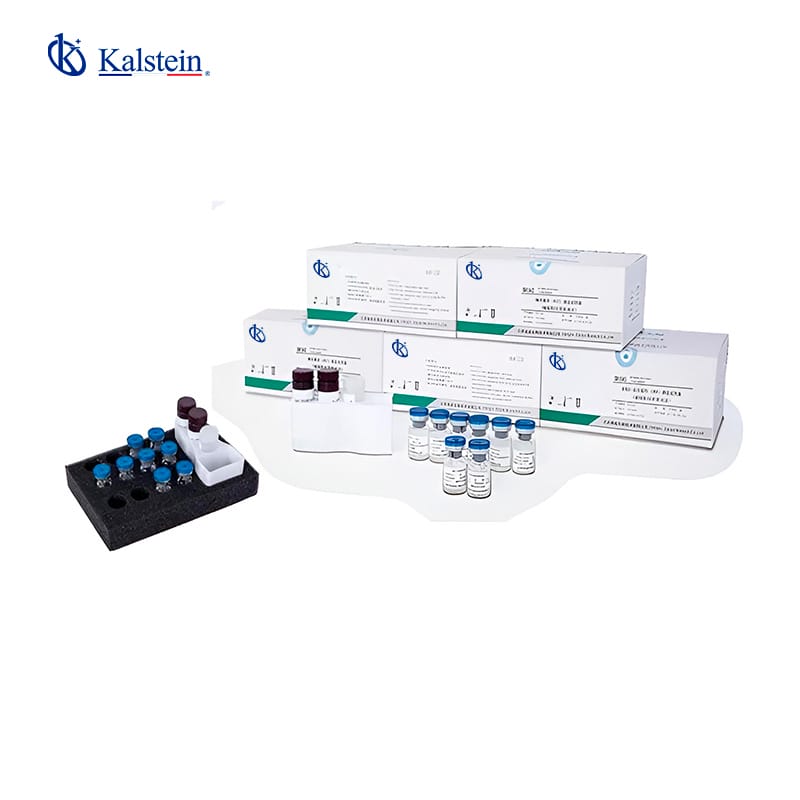Product Description
The Hepatic Fibrosis Test series by Kalstein, encompassing models YRA317, YRA318, YRA319, YRA320, and YRA321, is at the forefront of diagnostic innovation. These tests are meticulously crafted to measure essential fibrosis biomarkers including PIIINP, CIV, LN, HA, and CG, thus offering comprehensive liver health profiling. Utilizing Chemiluminescence Immunoassay (CLIA) technology, these tests ensure high sensitivity and specificity in results, setting a new standard in the medical diagnostic industry.
Each test is available in various packaging options including 50T/BOX, with platforms supporting 100T/BOX, 24T/BOX, and 48T/BOX AP (Alkaline Phosphatase), allowing flexibility to accommodate different laboratory settings. Designed for optimal performance within a storage temperature of 2-8°C, these tests include calibration options of 2 or 6 points, ensuring precision in diagnosis and consistency in patient monitoring. The certifications of CE, ISO13485, and FSC further attest to the product’s adherence to international quality and safety standards, making it a reliable choice for healthcare professionals worldwide.
| Model | YRA317 | YRA318 | YRA319 | YRA320 | YRA321 |
|---|---|---|---|---|---|
| Tested Parameter | PIIINP | CIV | LN | HA | CG |
| Analysis Mode | CLIA | ||||
| Package Specification | 50T/BOX, | ||||
| Platform | 100T/BOX,24T/BOX, 48T/BOX AP(Alkaline Phosphatase) | ||||
| Storage | 2-8°C | ||||
| Calibration | 2/6 Points | ||||
| Certification | CE, ISO13485,FSC | ||||
Market Price
Hepatic fibrosis tests typically present a varied range of prices in the market, influenced by factors such as the technological sophistication of the test and the brand’s standing in the industry. On average, high-quality tests such as those offered by Kalstein range from $200 to $500 per box, depending on the packaging and specific functionalities required by the healthcare facility. These competitive prices reflect the value offered by Kalstein in terms of precision, reliability, and support, aligning with the needs of both small and large medical institutions.
Frequently Asked Questions
What is the main advantage of using CLIA technology in these tests?
CLIA technology enhances the sensitivity and specificity of test results, leading to more accurate and reliable diagnostics, vital for effective patient management.
Can these tests be used in both small clinics and larger hospitals?
Yes, the flexibility in packaging and platform options allows these tests to be effectively utilized in a variety of healthcare settings, from small-scale clinics to large hospital labs.
Advantages and Disadvantages
Advantages: The Hepatic Fibrosis Test series by Kalstein offers several advantages, including high precision in detecting liver fibrosis markers using CLIA technology, and robust quality certifications (CE, ISO13485, FSC) that guarantee safety and efficacy. The variety in test models allows for a comprehensive assessment of liver health, while the temperature-controlled storage requirements ensure that the tests retain their integrity over extended periods.
Disadvantages: While the precision of these tests is a significant advantage, the reliance on specific storage conditions might pose logistical challenges for some facilities. Additionally, although the tests offer high-quality diagnostics, the upfront cost could be a consideration for smaller clinics with limited budgets.
Product Use in Practice
In clinical settings, the use of the Hepatic Fibrosis Test involves meticulous sample preparation followed by analysis under controlled conditions to ensure accuracy. The tests leverage CLIA technology to provide sensitive detection of fibrosis markers, which assists healthcare providers in diagnosing liver conditions with greater confidence. These diagnostics are crucial in the assessment of liver damage and in monitoring the progression of liver diseases such as hepatitis or fatty liver disease. The efficiency and reliability of the tests make them indispensable tools in the medical diagnostic toolkit.
Healthcare professionals are recommended to follow strict procedural guidelines and ensure that samples are handled under optimal conditions. Regular calibration of 2 or 6 points is advised to maintain the highest level of diagnostic accuracy, crucial for effective patient management and treatment planning.
Recommendations
For optimal use of the Hepatic Fibrosis Test series, it is recommended to store the kits within the specified temperature range of 2-8°C to preserve their efficacy. Healthcare facilities should ensure that the tests are used by trained personnel who understand the intricacies of CLIA technology. Additionally, maintaining a routine calibration schedule will help uphold the integrity of results, as will consistent adherence to prescribed procedures.
Interested in enhancing your diagnostic capabilities? Experience the unmatched quality and innovation of Kalstein’s Hepatic Fibrosis Test series. Generate an automatic quote through Kalstein Plus for an unparalleled purchasing experience tailored to meet your specific laboratory needs.
If you are looking for a fusion of innovation and quality, you have come to the right place. At Kalstein, we offer you the luxury of exploring our exclusive catalog of laboratory equipment. We manufacture each piece with a level of excellence. Our intuitive and agile online shopping channels are designed for your convenience, ensuring the most friendly prices. Don’t hesitate any longer; we bring science to life, and it’s time to become part of our community. Explore our products.


